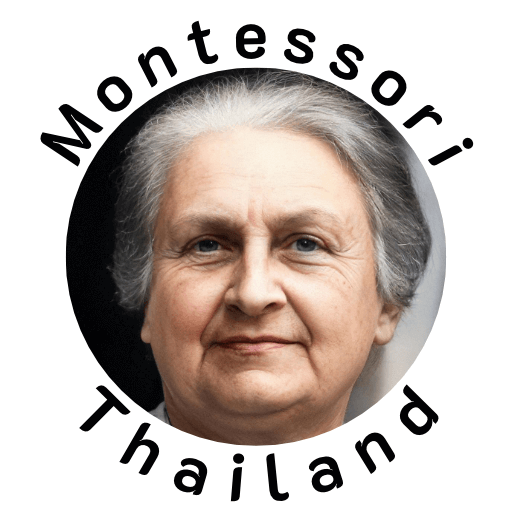Montessori in Thailand: Similar to Erdkinder Plan
Yaowawit School – โรงเรียนเยาววิทย์
Thailand | T. Mao, A. Kapong, C. Phang Nga | 2008
Montessori in Thailand: Similar to Erdkinder Plan
Yaowawit School – โรงเรียนเยาววิทย์ Thailand | T. Mao, A. Kapong, C. Phang Nga | 2008
Montessori education, a renowned and effective educational approach, has found its way to the beautiful country of Thailand. Among the schools that have embraced this method is the Yaowawit School, also known as โรงเรียนเยาววิทย์ in Thai. In this article, we will delve into the Montessori philosophy and how it is implemented at the Yaowawit School, drawing parallels to the Erdkinder Plan. Let’s explore the fascinating world of Montessori education in Thailand and its impact on students’ lives.
What is Montessori Education?
Montessori education, developed by Dr. Maria Montessori in the early 20th century, is an educational philosophy that emphasizes independence, self-directed learning, and respect for the child’s natural psychological development. It is designed to nurture each child’s innate curiosity and desire to learn through hands-on activities and purposeful work. The Montessori approach acknowledges that children have different learning styles and paces, and it aims to create an environment that caters to individual needs.
The Erdkinder Plan
The Erdkinder Plan, an extension of the Montessori method, focuses on adolescent education. The term “Erdkinder” translates to “earth children,” indicating the stage of development when young individuals seek to find their place in the world. This phase often occurs during adolescence, typically between the ages of 12 and 18. The Erdkinder approach aims to provide adolescents with practical life experiences and opportunities to develop essential skills for adulthood.
Montessori in Thailand
In Thailand, Montessori education has gained popularity as an alternative approach to traditional schooling. The emphasis on fostering a child’s independence and natural curiosity aligns well with Thai cultural values that encourage self-reliance and creativity. The approach has been embraced by educators who recognize the importance of empowering students to become lifelong learners and critical thinkers.
Yaowawit School – Embracing Montessori
One prominent institution that has embraced Montessori education in Thailand is the Yaowawit School. Founded in 2008 and located in the provinces of T. Mao, A. Kapong, and C. Phang Nga, Yaowawit School has integrated the Montessori philosophy into its curriculum. The school’s vision is to provide underprivileged children with a transformative education that prepares them for a brighter future.
Montessori Principles at Yaowawit School
At Yaowawit School, the principles of Montessori education are deeply ingrained in the daily routines and learning experiences of the students. The classrooms are thoughtfully prepared with Montessori materials that encourage exploration and self-discovery. Teachers act as facilitators, guiding students’ learning journeys and respecting their individual interests.
The mixed-age classrooms at Yaowawit School promote a sense of community and collaboration. Younger students have the opportunity to learn from their older peers, while older students reinforce their knowledge by teaching and helping others. This approach not only enhances academic learning but also fosters social and emotional development.
Erdkinder-inspired Experiences
Drawing inspiration from the Erdkinder Plan, Yaowawit School goes beyond traditional academics to offer real-world experiences for its adolescent students. The school believes in learning by doing and provides opportunities for students to engage in practical activities like farming, woodworking, and entrepreneurial ventures. These experiences aim to instill essential life skills such as responsibility, problem-solving, and teamwork.
Impact on Students
The Montessori approach, complemented by Erdkinder-inspired experiences, has had a profound impact on the students of Yaowawit School. By nurturing their curiosity and independence, students become more motivated and engaged in their learning. They develop a sense of responsibility for their actions and learn to take ownership of their education.
Moreover, the emphasis on practical experiences equips students with valuable skills that go beyond academics. These skills prepare them for adulthood and empower them to make meaningful contributions to society. Graduates of Yaowawit School emerge as confident, capable, and compassionate individuals, ready to face the challenges of the world.
Montessori education in Thailand, similar to the Erdkinder Plan, has proven to be a powerful and transformative approach to learning. At Yaowawit School, the Montessori philosophy has been seamlessly integrated into the curriculum, fostering a love for learning and personal growth among its students. The Erdkinder-inspired experiences further enhance the students’ education, providing them with practical life skills and a deeper understanding of the world around them.
As Montessori in Thailand: Similar to Erdkinder Plan Yaowawit School – โรงเรียนเยาววิทย์ continues to thrive, it serves as a beacon of hope for education, demonstrating the positive impact of empowering students and nurturing their individual potential. As we celebrate the success of this approach, let us continue to support and advocate for innovative educational methods that shape the leaders of tomorrow.
